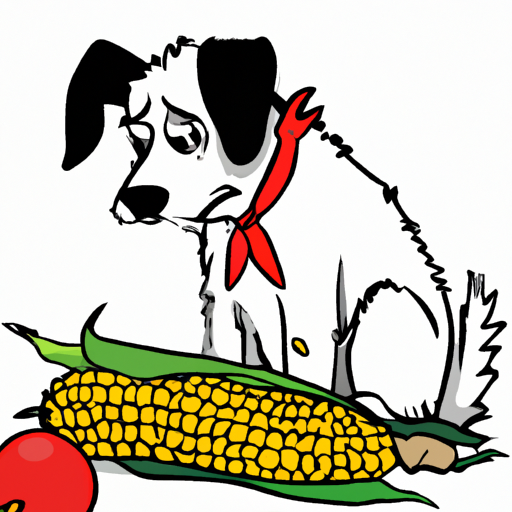Introduction
Hello, caregiver! You’ve always been keen on providing the best care for your beloved pet. However, there’s something you might not know: corn can be bad for dogs. You might wonder, “But isn’t corn a common ingredient in dog food?” Yes, it is. But just because it’s common doesn’t mean it’s beneficial.
Why is Corn Included in Dog Food?
Firstly, let’s understand why corn is often found in dog food.
- It’s an economical choice for manufacturers.
- It serves as a filler to bulk up the food.
- It provides energy for your dog.
But like a beautiful rose with hidden thorns, corn, despite its benefits, can pose threats to your dog’s health.
The Risks of Corn for Dogs
Corn might look innocent, yet it can lead to several health issues.
- Allergies: Corn is one of the most common allergens among dogs. Signs include itching, redness, and gastrointestinal upset.
- Digestive Issues: Dogs have a hard time digesting corn. This can lead to bloating and gas, and in severe cases, intestinal blockage.
- Obesity: Corn is high in carbohydrates, leading to weight gain if not properly balanced with exercise.
But what about the nutritional value? Let’s take a look.
| Nutrient | Amount in Corn |
|---|---|
| Protein | Low |
| Fiber | Moderate |
| Vitamins | Low |
As you can see, the nutritional benefits of corn are moderate at best.
The Ideal Dog Diet
So, what should you feed your dog instead? Dogs, just like humans, need a balanced diet. This should include:
- High-quality proteins: Such as chicken, beef, or fish.
- Healthy fats: Like those found in fish oil or flaxseed.
- Fruits and vegetables: For vitamins and antioxidants.
Remember, every dog is unique. Their diet should be tailored to their specific needs, taking into account factors like age, size, and activity level.
Finding the Right Dog Food
When choosing dog food, look for these indicators of quality:
- The first ingredient should be a specific type of meat.
- It should be free from artificial colors, flavors, and preservatives.
- It should contain a good balance of proteins, fats, and carbohydrates.
Frequently Asked Questions
Q: Can my dog eat corn at all?
A: Yes, but in moderation. Corn isn’t toxic to dogs, but it can cause issues if consumed in large amounts.
Q: What should I do if my dog has a corn allergy?
A: Consult your vet for an alternative diet plan. They might recommend grain-free dog food.
Q: Are other grains bad for dogs?
A: Not all grains are bad. Some, like brown rice and oatmeal, can be beneficial. It’s always best to consult with a vet.
Remember, what matters most is the health and happiness of your furry friend. So, consider their dietary needs carefully. After all, a healthy dog is a happy dog!



